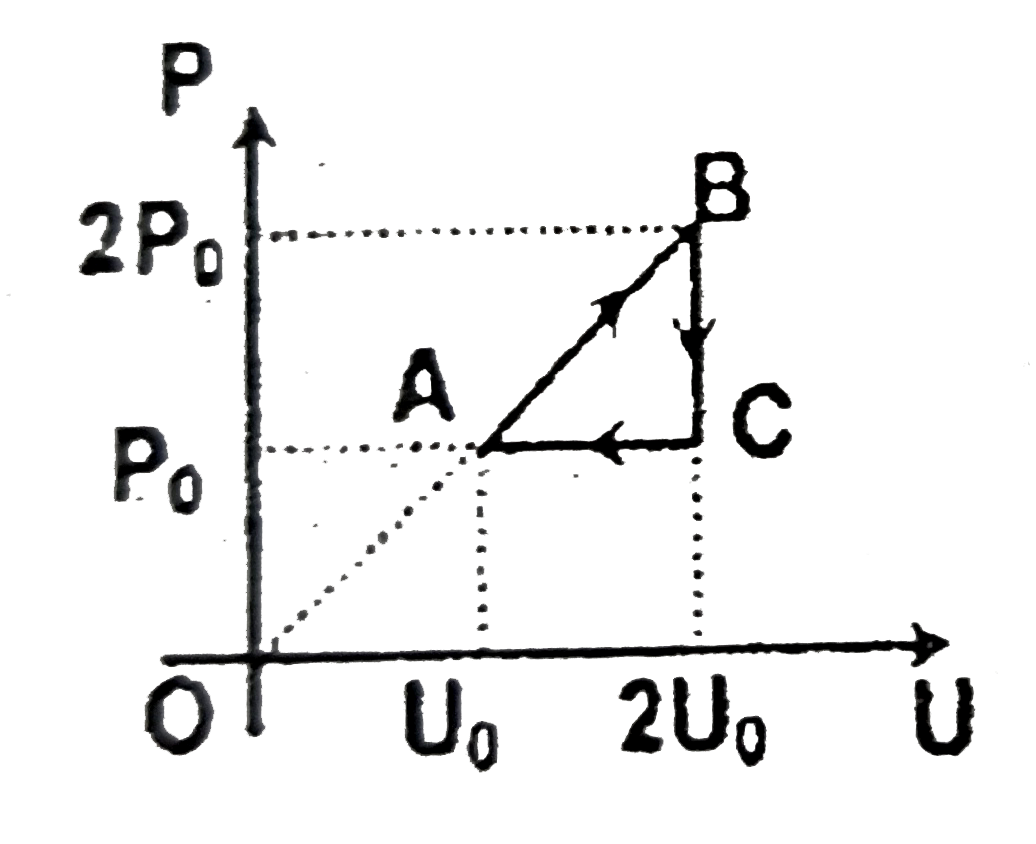An ideal monatomic gas undergoes process PV1.25 = constant .Then
(a)upon increase in pressure temperature decreases
(b)upon increase in pressure heat is absorbed by gas
(c)if heat is given to gas its internal energy increases
(d)heat is absorbed by gas if volume increases
The correct Answer is:D
Step by step video & image solution for An ideal monatomic gas undergoes process PV^(1.25) = constant .Then by Physics experts to help you in doubts & scoring excellent marks in Class 12 exams.
Updated on:21/07/2023Similar Questions
A certain amount of ideal monoatomic gas undergoes a process given by TV1/2= constant. The molar specific heat of the gas for the process will be given by
View SolutionTwo moles of an ideal monoatomic gas undergoes a process VT= constant. If temperature of the gas is increased by ΔT=300K, then the ratio (ΔUΔQ) is
View SolutionFind the molar heat capacity (in terms of R) of a monoatomic ideal gas undergoing the process: PV1/2=constant?
View SolutionFind the molar heat capacity (in terms of R) of a monoatomic ideal gas undergoing the process: PV1/2=constant?
View SolutionA diatomic gas undergoes a process represented by PV1.3= constant . Choose the incorrect statement
View SolutionOne mole of an ideal monatomic gas undergoes the process P=αT1/2, where α is constant . If molar heat capacity of the gas is βR1 when R = gas constant then find the value of β.
View SolutionAn ideal monatomic gas undergoes a cyclic process ABCA as shown in the figure. Graph of pressure versus volume of the cyclic process ABCA is

View SolutionOne mole of an ideal monatomic gas undergoes the process p=αT1/2, where α is a constant.
(a) Find the work done by the gas if its temperature increases by 50K.
(b) Also, find the molar specific heat of the gas.
View SolutionOne mole of an ideal monatomic gas undergoes the process p=αT1/2, where α is a constant.
(a) Find the work done by the gas if its temperature increases by 50K.
(b) Also, find the molar specific heat of the gas.
View SolutionA certain ideal gas undergoes a polytropic process PVn = constant such that the molar specific heat during the process is negative. If the ratio of the specific heats of the gas be γ, then the range of values of n will be
View Solution
